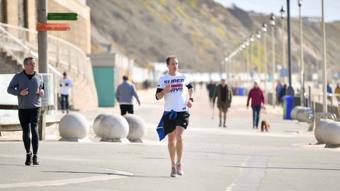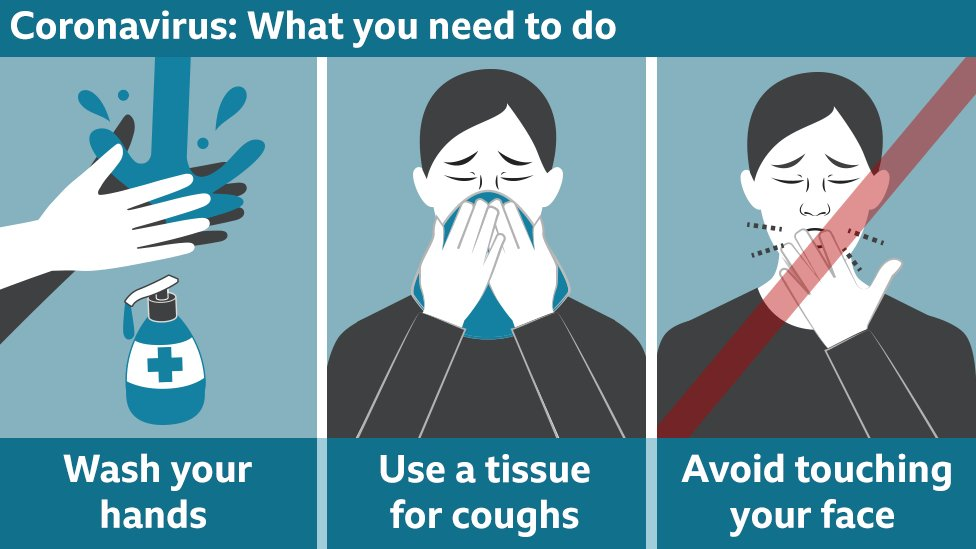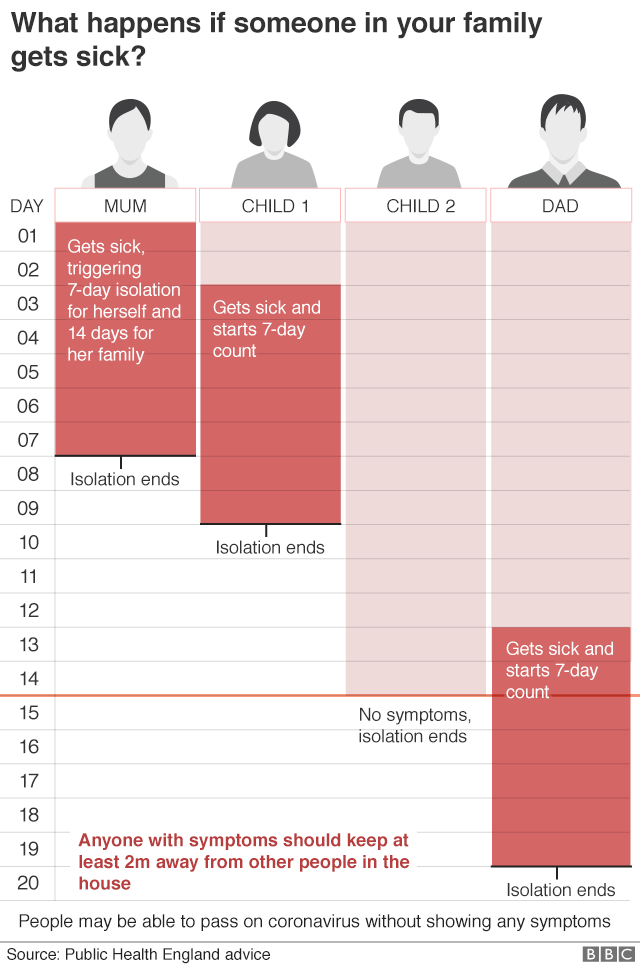Coronavirus: What Are Social Distancing And Self-Isolation Rules?

The UK's coronavirus restrictions will last for "at least" another three weeks from 16 April, according to the government.
The measures in place say people should go out as little as possible and only leave home if they have a "reasonable excuse". This includes:
Exercise - alone, or with members of your household Shopping for basic necessities Any medical need, or providing care for a vulnerable person Travel to or from work, but only when you cannot work from home
Police also have wide-ranging powers to help fight coronavirus by enforcing the social distancing measures.
What Is A 'Reasonable Excuse'?
Police officers have been issued guidance about what might be "reasonable" and "unreasonable" excuses for people leaving their homes.
For instance, buying tools to repair a recently damaged fence panel would be reasonable, but buying paint and brushes simply to redecorate a kitchen would not be allowed.
What Are The Rules On Exercise?
If you have to go outside you should stay more than 2m (6ft) apart from anyone other than members of your own household. This is what's known as social distancing.
Government guidance urges people to "stay local", use open spaces near their home and avoid unnecessary travel.
However, National Police Chiefs' Council (NPCC) guidelines for England say driving to the countryside to walk is likely to be considered a reasonable excuse (so long as far more time is spent walking than driving).People should only exercise once a day, although in England, Scotland and Northern Ireland there is no legal ban on exercising more than that. In Wales, which sets its own health regulations, exercising more than once a day is now illegal - and potentially a criminal offence. You can exercise alone or with members of your own household. Dogs can be walked as part of a person's daily exercise
No mention is given to how long you can exercise for. But Cabinet Office minister Michael Gove has suggested a walk of up to an hour, a run of 30 minutes or a cycle ride of between the two might be appropriate for most people.
Can I Go To The Park?
Some public parks in London were temporarily closed following lockdown. But the government has now told councils that parks should remain open. Communities Secretary Robert Jenrick said, "For the health of the nation, people should be able to enjoy fresh air and green space."
Gatherings of more than two in parks and public spaces have been banned (ruling out most team sports)A person is allowed to stop for a break in exercise, according to NPCC guidelines. However short periods of exercise followed by long periods of inactivity are not permitted (so sunbathing would not be allowed)It also says, for example, people should not be "home-working" in parks, or sitting on a public bench for long periods of time.


Why Is Social Distancing Necessary?
Social distancing is important because coronavirus spreads when an infected person coughs small droplets - packed with the virus - into the air.
These can be breathed in, or can cause an infection if you touch a surface they have landed on, and then touch your face with unwashed hands.

What Is Self-Isolation?
If you show symptoms of coronavirus - such as a dry cough and high temperature - you must take extra precautions.
- You should stay at home and not leave it for any reason. .
- This is known as self-isolation.
- You should not go out even to buy food or medicine, and should order them online or ask someone to drop them off at your home for you.
- You can use your garden, if you have one, and any exercise should be taken at home.
Who Should Self-Isolate?
Everyone who shows coronavirus symptoms - a fever of above 37.8C, a persistent cough or breathing problems - and everyone who lives in the same house or flat as someone with symptoms.
If you live alone, you must stay at home for seven days from the day symptoms start. If you still have a high temperature after seven days, you must continue to self-isolate until your temperature returns to normal
However, you do not need to continue to self-isolate if you only have a cough after seven days (that's because a cough can last for several weeks after the infection has gone)If you, or someone you live with, develop symptoms, the entire household needs to isolate for 14 days to monitor for signs of Covid-19If someone else does become ill during that period, their seven-day isolation starts that day. For example, it might run from day three to day 10 - when that person's isolation would then end. It would not restart if another member of the household fell ill But anyone who fell ill on day 13 would have to start a separate seven-day isolation from that day (meaning they would spend a total of 20 days at home)If you have previously tested positive for Covid-19, you and your household do not need to self-isolate if your symptoms remerge. That's because, according to the government, anyone who has previously tested positive for Covid-19 will probably have immunity to the disease


The person with the symptoms should stay in a well-ventilated room with a window that can be opened, and keep away from other people in the home.
People are being advised not to ring NHS 111 or their GP to report their symptoms unless they are worried.
Who Shouldn't Go Out At All?
About 1.5 million people with very serious health conditions are being contacted by the NHS and urged not to go out at all for at least 12 weeks.
This is what's known as shielding.
The most vulnerable group includes:
Certain types of cancer patients. Organ transplant patients. People with certain genetic diseases. People with serious respiratory conditions such as cystic fibrosis and severe chronic bronchitis. People receiving certain drug treatments which suppress the immune system. Pregnant women with heart disease
The government says it will work with local authorities, supermarkets and the armed forces to ensure they get supplies of essential food and medicines.
Others in the same household, and carers, can go out as long they observe proper social distancing.









0 comments:
Post a Comment